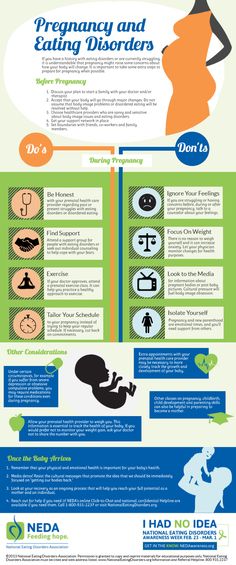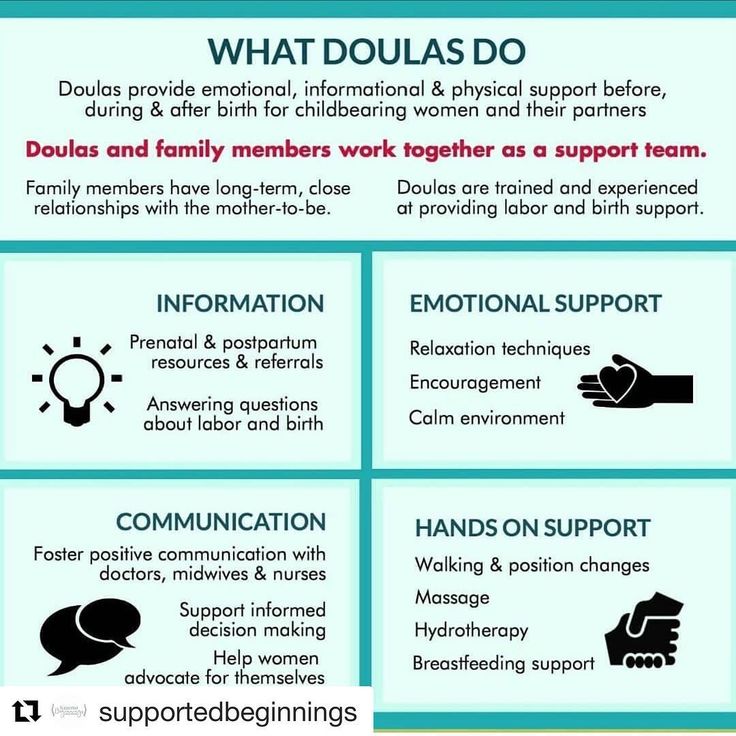No emotional support during pregnancy
Unsupportive Partner During Pregnancy | What To Do
Pregnancy brings a major change to life as you know it.
In most ways, you think you’re prepared for the new things ahead.
But what happens if you’re also dealing with an unsupportive partner during pregnancy?
Pregnancy can actually be the hardest time in a relationship or marriage for many mothers and their partners.
What if you feel alone and unsupported during a time that’s meant to be full of hope and joy?
How pregnancy can affect your relationship
We tend to think of pregnancy as a wonderful life event – and it is! But it can also be a very difficult time for couples.
Often the focus is solely on the pregnancy, and the emotional connection between two people takes a back seat.
Pregnancy can bring with it a sense of impending change. You or your partner might not be prepared for how intense that feeling is. You might not have the tools to cope with anxiety or frustration, and you vent it in anger instead.
Your body is at the mercy of hormonal changes that can cause a lot of emotional upheavals.
This can be confusing for your partner, especially as a lot of what goes on in the first trimester is pretty much invisible.
You might look the same, but you’re extremely exhausted, nauseous, and irritable.
Your partner could be feeling overwhelmed about how to provide for a family, or wondering whether he’ll be a good father.
In some expectant dads, this triggers a ‘fight or flight’ response because they’ve never been taught or modeled how to express their feelings.
How should your partner treat you during pregnancy?
Ideally, during pregnancy, couples will build a stronger bond than ever before. They’re creating a family, and for many couples, this is a time when they realize how their own upbringing has formed who they are as adults.
Men aren’t doing the physical pregnancy bit so they don’t always understand the reality of how hard it can be.
The most important thing a man can do for his pregnant partner makes her feel more loved and secure than ever before.
15 Great Ways To Support Her During Pregnancy is a great read for all partners of pregnant women.
Is it normal to fight with your partner during pregnancy?
It’s actually quite normal to disagree more frequently during pregnancy. But it’s how you both deal with it that matters.
If you have a healthy relationship, you’re more likely to weather this stage. If your relationship was already having difficulties, pregnancy can bring many new emotions to the table.
Although we envision the perfect scenario, so many things can go differently than we expect during this time.
Some examples might be:
- You’re in a relationship with the child’s father and are arguing more than usual
- Your relationship was already breaking down when you got pregnant
- You’re not with the father of the child and didn’t intentionally get pregnant
- Your partner’s mood seems to have changed since you got pregnant
- Your mood seems to have changed since you got pregnant.

Planned pregnancy but now unsupportive husband
It can be a shock if you had looked forward to getting that positive home pregnancy test, and then you find your partner is less than enthusiastic about being a parent.
We’re more aware of what to look for in women, but about 1 in 10 men also experience antenatal or postnatal depression.
These are some of the symptoms to look out for in your partner:
- Fatigue
- Lack of interest in activities once enjoyed
- Mood swings
- Anger
- Change in appetite
- Irritability
- Sadness or crying
- Sleep or memory problems.
The American Academy of Pediatrics stresses that the risk of men experiencing depression is increased by 50% when their partners also experience prenatal depression.
Relationship breakdown during pregnancy
If you and your partner planned your pregnancy and now he’s being unsupportive, chances are that he’s experiencing one of these:
- Prenatal depression
- Jealousy over your relationship with the baby
- Worry or stress about finances
- Pressure of feeling the need to provide or protect
- Doubt about what the future will bring
- Stress about feeling as though everything has changed
- A feeling he’s not needed
- Confusion or distress about watching you change from his partner to the mother of his child
- Feelings about your body changing, including your post-birth weight
- Worries about the birth, being a parent, or the effect a baby will have on your relationship
- If you already have one child or more, concerns he won’t be able to love all of your children in the same way
If your partner has become unsupportive during pregnancy, it doesn’t necessarily mean he doesn’t want the baby. It could be that you both experience the same situation from different perspectives.
It could be that you both experience the same situation from different perspectives.
Having an unsupportive partner doesn’t necessarily mean your relationship is in danger of breaking down.
Insensitive partner during pregnancy
As much as we hope our partners will be just as excited as we are during pregnancy, sometimes that isn’t the case.
They could be having trouble coping for one of the reasons above. Or they simply might not be as excited about having a baby as you are.
This can lead to depression or behaviors such as:
- Irritability
- Generally being unsupportive
- Showing a lack of interest in the pregnancy or baby
- Displaying anger towards the pregnant woman or baby
- Showing stress in other destructive ways
Knowing the difference between being insensitive and being abusive is important.
Unfortunately, during pregnancy women are at greater risk of experiencing domestic violence from their partners, whether it’s for the first time or the abuse escalates. Abuse ranges from physical to emotional, and even financial.
Abuse ranges from physical to emotional, and even financial.
If you’re experiencing abuse or family violence, seek advice from local support organizations to keep you and your baby safe.
If you’re in immediate danger, call your local emergency number.
How do I deal with an unsupportive partner during pregnancy?
What can you do if you find yourself with an unsupportive partner during pregnancy?
The good news is there’s plenty of support out there.
Relationship troubles during pregnancy are more common than you’d think.
There are plenty of places where you can find the support you need.
Here’s where you can go if you’re experiencing struggles of this kind:
- Mental health professionals
- Relationship classes
- Individual therapy
- Childbirth education classes
- Your doctor, midwife, or health care professional
Selfish husband during pregnancy
If you think that you or your partner are experiencing depression while you’re waiting for baby, or if you feel your husband is being selfish therapy could be the best option.
You can go together or you can go alone.
Your partner might have strong feelings either way, so go with what works for your life.
A well-trained therapist:
- Works with people who want to learn better communication and understanding skills
- Help find the reasons for any challenges or distress
- Addresses any mental health conditions of either partner that might need attention before baby arrives
- Helps those who have mental or physical health conditions to take steps so they can feel in control
- Helps men feel like they are as much a part of the birth, delivery, and parenthood journey as their partners are
- Gets to the root of why partners might have problems with being supportive
- Helps the husband find his role
- Addresses any attention or jealousy distress partners might be feeling
- Addresses concerns about parenting the child
- Addresses concerns about changes in a woman’s body
- Addresses any fear or concerns partners have about past difficult pregnancies or births
- Helps couples come together to acknowledge and discuss all the impacts a child will have on the relationship
- Addresses any self-esteem challenges women or partners are having
- Helps partners face the pressures of work or supporting the family
Your therapist should be able to keep the focus of your communication on the reasons for your partner’s lack of support, without getting side-tracked into arguments or blaming.
Are You Getting BellyBelly’s Baby Week By Week Emails?
We think they’re the best on the internet!
Click to get the FREE weekly updates our fans are RAVING about.
Boyfriend not supportive during pregnancy
There’s not a lot of support for men during pregnancy and after the birth.
Childbirth education classes are a great sources of support. Your partner may be feeling uninvolved in the pregnancy and classes can really change that perspective.
Everyone in the group is experiencing the same thing and can support one other.
Chatting with other fathers might even help him.
Getting advice and tips from others dads, on any concerns or problems he has, could make all the difference.
Your group can even offer relationship advice or tips on how to connect with each other.
And, who knows, some of these people could be your friends after you’ve had your children.
Can stress hurt your baby?
Stress is a normal human response to certain situations. In most cases, a little bit of stress is protective, as it keeps us from making bad or destructive choices.
In most cases, a little bit of stress is protective, as it keeps us from making bad or destructive choices.
Ongoing or chronic stress, though, is not a healthy state of being for anyone, especially pregnant women and their babies.
Make sure you take steps to manage stressful feelings, whether that means sorting out relationship problems or making time for self-care each day.
Stress During Pregnancy – How Does Stress Affect Pregnancy? has more information.
Ending a relationship while pregnant
Today’s social expectations of how a family should look are very different from those existing only a few decades ago.
Research suggests the nuclear family of mother, partner, and baby is as popular as ever and best for the health of the child.
Although this is obviously the ideal situation, ending your relationship while pregnant could be the only option if your partner isn’t on board with resolving conflict, or has become abusive.
Past abusive behavior is a good predictor of future abusive behavior.
Make sure you can assess whether your partner is being unsupportive or abusive.
Know your rights and, if necessary, make an escape plan or call emergency services.
Your family welfare must come first. If you feel threatened, it’s important you’re able to get to a place where you feel safe.
If narcissism or co-dependency is an issue, some great resources on Facebook include The Holistic Psychologist, Lisa A Romano and Kyle Benson.
Recommended reading:
- Should I Leave Or Stay For The Kids?
- Becoming Us – a fantastic book by Elly Taylor
Taking Care of Your Mental Health During Pregnancy (for Parents)
Pregnancy brings a mix of feelings, and not all of them are good. If you're feeling worried, you're not alone. Worry is common, especially during a woman's first pregnancy or an unplanned one. It can be even harder if you're dealing with depression or anxiety.
For your health and your baby's, take care of yourself as much as you can. Be sure to eat well, exercise, get enough sleep, and take your prenatal vitamins.
Be sure to eat well, exercise, get enough sleep, and take your prenatal vitamins.
If you're feeling worried, sad, or nervous, talk to someone about it — and know when to reach out for help.
What Feelings Can Happen?
Mood swings are normal during pregnancy. But if you feel nervous or down all the time, it could be a sign of something deeper going on. Stress over being pregnant, changes in your body during the pregnancy, and everyday worries can take a toll.
Some pregnant women may have depression or anxiety:
- Depression is sadness or feeling down or irritable for weeks or months at a time. Some women may have depression before getting pregnant. But it also can start during pregnancy for a number of reasons — for example, if a woman isn't happy about being pregnant or is dealing with a lot of stress at work or at home.
- Anxiety is a feeling of worry or fear over things that might happen. If you worry a lot anyway, many things can stress you out during pregnancy.
 You might worry that you won't be a good mother or that you can't afford to raise a baby.
You might worry that you won't be a good mother or that you can't afford to raise a baby.
Pregnant women may have other mental health issues, such as:
- bipolar disorder (episodes of low-energy depression and high-energy mania)
- post-traumatic stress disorder (PTSD)
- panic attacks (sudden, intense physical responses with a feeling of unexplained and paralyzing fear)
- obsessive-compulsive disorder (OCD)
- eating disorders (like bulimia or anorexia nervosa)
It's important to treat mental health concerns during pregnancy. Mothers who are depressed, anxious, or have another issue might not get the medical care they need. They might not take care of themselves, or they may use drugs and alcohol during the pregnancy. All of these things can harm a growing baby.
If you have a mental health issue, talk with your doctor so you can get the help you need during and after your pregnancy.
How Can I Get Help?
If you feel anxious or depressed, talk to a doctor, counselor, or therapist, and get help right away. The sooner treatment starts, the sooner you'll feel better.
The sooner treatment starts, the sooner you'll feel better.
Also talk to a doctor about your overall health and any mental health issues you've had in the past. It's best for your doctor to know your full medical history, in case anything comes up during or after your pregnancy.
How Are Problems Treated?
Treatment for mental health problems may include:
- Prescription medicine. Always talk to a doctor before you start taking — or stop taking — any medicines during your pregnancy. If you take any kind of medicine for a mental health issue and are pregnant or planning to get pregnant, tell your doctor. Don't stop taking it unless your doctor tells you to. Some medicines may cause problems for a growing baby, but stopping your medicine may make things worse. Your doctor can make a treatment plan that is best for you and your baby.
- Talk therapy. Talking one-on-one with a therapist can be a great way to manage stress, deal with depression, and ease anxiety during pregnancy.
 Finding a support group where you can share your concerns with other mothers who know what you're going through also can help. Talking with a social worker or counselor can help you deal with money issues, worries over raising a child, or other stresses in your life.
Finding a support group where you can share your concerns with other mothers who know what you're going through also can help. Talking with a social worker or counselor can help you deal with money issues, worries over raising a child, or other stresses in your life. - Other approaches. Many women find comfort in activities like yoga, exercise, and meditation. If you're feeling stressed or overwhelmed, talking to a friend, family member, or faith leader can help you feel better.
Many moms feel anxious or depressed at some point in their pregnancy, and some may even need treatment for it. But a mental health problem doesn't have to be a problem for you or your baby. Get the help you need to feel better, and you'll be doing the best thing for you both.
Reviewed by: Mary L. Gavin, MD
Date reviewed: February 2017
Psycho-emotional support during pregnancy
Clinic of Gynecology and Oncogynecology
Moscow, st. Shchepkina, 35
Shchepkina, 35
Moscow, Spiridonievsky per., 5/1
Moscow, st. Pravdy, 15 building 1
Write to WhatsApp
January 11, 2017
Loginova Olga
Obstetrician-gynecologist, Ph.D.
Pregnancy is generally assessed as a prosperous emotional period for the woman and the family as a whole. At the same time, in some women, the period of pregnancy and the state of motherhood increase the risk of developing or progressing mental disorders. Numerous studies have shown that pregnancy does not protect against the development of severe depression or the worsening of existing problems. Women who stop treatment on their own or reduce drug dosages are at high risk. Women are twice as likely to be depressed as men. Not surprisingly, depression is one of the most common medical complications during pregnancy and the postpartum period.
Postpartum depression
Risk factors for depression in pregnancy:
-
daily stresses, including adverse events,
-
lack of social support,
-
domestic violence,
-
history of depression in previous pregnancies,
-
maternal anxiety,
-
unwanted pregnancy,
-
ambivalence towards pregnancy,
-
low income,
-
low level of education,
-
smoking,
-
absence of spouse/partner (single mother),
-
a history of postpartum depression and dose reduction or self-refusal to take antidepressants.
Potential complications of depression during pregnancy
Mother
-
Difficulties in childcare.
-
Smoking, alcohol or other drug abuse.

-
Decreased appetite and low body weight.
-
Sleep disorders.
-
Alarm.
-
Aggravation of depression.
-
Suicidal thoughts or attempts.
-
Not breastfeeding.
-
Disruption of communication mother-newborn.
-
Postpartum depression.
Effect of depression on fetal development - possible negative effects:
-
teratogenic effect,
-
spontaneous miscarriages,
-
preeclampsia,
-
intrauterine growth retardation,
-
premature birth,
-
low birth weight.
During pregnancy, many women experience increased levels of anxiety and emotional lability. In the first 3 months after childbirth, the risk of a mental disorder increases several times. Depression occurs in 80% of cases. Most mental disorders occur in women of childbearing age, in connection with this, pregnancy often occurs while taking psychotropic drugs. Abrupt withdrawal of psychotropic drugs often leads to relapse of psychiatric illness - a careful assessment of the risks and benefits to mother and fetus of medication and relapse of psychiatric disorder should be carried out. In women of childbearing age and pregnant women, psychotropic drugs that are as safe as possible for the fetus should be used. In some cases of mild to moderate anxiety and depressive disorders, cognitive behavioral therapy is the first choice.
Depression occurs in 80% of cases. Most mental disorders occur in women of childbearing age, in connection with this, pregnancy often occurs while taking psychotropic drugs. Abrupt withdrawal of psychotropic drugs often leads to relapse of psychiatric illness - a careful assessment of the risks and benefits to mother and fetus of medication and relapse of psychiatric disorder should be carried out. In women of childbearing age and pregnant women, psychotropic drugs that are as safe as possible for the fetus should be used. In some cases of mild to moderate anxiety and depressive disorders, cognitive behavioral therapy is the first choice.
Principles of therapy
-
Involving prospective parents in decision making.
-
Use of the lowest effective doses.
-
Use of the safest preparations.
-
Do not administer multiple drugs at the same time.
-
Adjust dose during pregnancy.

-
Provide adequate screening for fetal development.
-
Inform obstetricians and gynecologists about possible changes in mental status.
-
Assess the development of withdrawal syndrome in a newborn.
Breastfeeding and drug therapy
-
All psychotropic drugs pass into breast milk. The concentration depends on the psychopharmacological properties of the drug.
-
Since most psychotropic drugs are metabolized by the liver, and in newborns up to 2-3 months. insufficiency of liver enzymes, then premature babies and newborns have an increased risk of toxic effects.
-
The concentration of antidepressants and tranquilizers in mother's milk is quite low, especially when using low doses. When planning a temporary breastfeeding regimen, it is possible to minimize the ingestion of the child, but it is impossible to exclude the toxic effect.
-
The concentration of normotimics (lamotrigine, carbamazepine, lithium preparations, valproic acid) in breast milk is very high (20-50% of the mother's serum concentration).
Psychotherapeutic techniques
-
Cognitive behavioral therapy.
-
Interpersonal psychotherapy.
-
Supportive psychotherapy.
-
Family counseling.
At the European Medical Center, all pregnant women in need of psychological support are accompanied by qualified obstetrician-gynecologists together with psychiatrists.
As part of the EMC School of Moms, you can ask any questions that concern you to our psychiatrists.
Rate
Average: 3.50 (2 ratings)
Clinic of Gynecology and Oncogynecology
Moscow, st. Shchepkina, 35
Moscow, Spiridonievsky per. , 5/1
, 5/1
Moscow, st. Pravdy, 15 building 1
Write to WhatsApp
Doctors and staff
IMPORTANT PREGNANCY QUESTIONS | About vitamins, nutrition, shoes, etc...
October 17
All videos
Clinic of Gynecology and Oncogynecology
Dear Vladimir Borisovich! Thank you from the bottom of my heart. You are truly a doctor from God with a capital letter. Thanks to your professionalism, kindness, tact, charm and talent, I believed in the success of the upcoming operation immediately at the first meeting at your appointment, you explained everything so intelligibly and convincingly that there was complete confidence in success. The operation you have done is fantastic! The very next day it was possible to sit, get up and groom, and on the third day I was discharged home. Just great. A month later, I completely forgot about the problems that I had before the operation. Once again, many thanks to you and your team, God bless you with health, well-being and success. You are a miracle doctor!!! Best regards, Antonina
Just great. A month later, I completely forgot about the problems that I had before the operation. Once again, many thanks to you and your team, God bless you with health, well-being and success. You are a miracle doctor!!! Best regards, Antonina
Antonina, Moscow
All reviews
Borderline ovarian tumors
October 17, 2022
All stories
We are asked
Diagnostics and implantation of teeth
22.09.2015
Natural childbirth after a small CS
05/23/2019
IVF after a polyp
09/09/2015
Read all
The role of a man in pregnancy
So, your wife is pregnant, which means you are expecting a baby together. And, most likely, you are interested in questions about how this pregnancy will directly affect you, your wife and your relationship in general. In order for everything to turn out well, you need to understand what your wife expects from you, and what is your role in this difficult period.
And, most likely, you are interested in questions about how this pregnancy will directly affect you, your wife and your relationship in general. In order for everything to turn out well, you need to understand what your wife expects from you, and what is your role in this difficult period.
The first thing your wife always expects from you is fulfilling a male role, fulfilling male duties, which can manifest themselves as participation and support in everyday ordinary life.
However, the time of pregnancy differs from the usual life of the spouses. Moreover, pregnancy itself consists of trimesters, which also have their own characteristics. Therefore, your participation and support should be different in each trimester.
First trimester
The wife's emotional state can be described as "here and now".
- During this period, it is important for your wife first of all to accept her pregnancy, to accept all the changes that are happening to her and in her.

- She becomes helpless, because the physiological and hormonal restructuring of the body in this trimester takes a lot of strength. A woman in her emotional state in the 1st trimester approaches the characteristics of a small child who needs parental care and priceless love.
On the other hand, it is the realization that both of you are becoming parents that prompts her to “test” you again and again for your readiness for fatherhood: what kind of father are you for her child, how do you cope with your role ...
Therefore, your task during this period is to try to be a father for both - for your wife and baby. And you won’t be able to come up with anything better than the simplest thing - to fulfill her “strange” desires, pamper her, protect her and show her how much you love her. Because attention to her, to her condition means for the wife that you will also take care of the child.
Supporting your wife at the beginning of pregnancy, you will get much more than you gave: you will get her confidence that you are there, that you can take care of her in a difficult responsible period, that you are an attentive, feeling father and you can have children with you.
Second trimester
The emotional state of the wife fits the definition of "bread and circuses".
In the second trimester, the emotional and intellectual sphere of a woman changes:
- the intensity of her emotions becomes brighter;
- long experiences disappear;
- the leading emotional background is positive and, if nothing happens, life is beautiful.
Now your wife is quite well adapted to her condition, eats "for two" and needs a variety of positive emotions.
What is your role in this trimester? To be with her - a partner, in all her endeavors: theater, exhibitions, cinema, shops, various taste changes (including possible restrictions on products), sex, doctors, prenatal courses, swimming pool, etc.
This is the "golden time" of pregnancy, when you live this period vividly together, are saturated with the novelty of life, and already your baby shows itself to be moving. In this trimester, a woman begins to move from the position of a child to a motherly position. She is already beginning to take concrete care of the baby: she communicates with him, looks for information related to the child, goes to courses, makes plans ...
She is already beginning to take concrete care of the baby: she communicates with him, looks for information related to the child, goes to courses, makes plans ...
During this period, you also begin to feel your paternity, because it becomes possible to communicate with the child through the stomach, and you can already form a first impression of him: what he is like, what he does not like, how he reacts to external events, how long it takes to calm down …
During this period, your role doubles: for your wife you become a caring partner in life, and for a baby - a parent. All you need to do is to be a support for your wife and make it clear that she is loved, despite any changes that occur to her body.
The third trimester
The third trimester can be characterized as follows: “nesting and sleeping…”
The essence of this trimester is to experience 2 events:
- to equip the “nest” and
- prepare for childbirth.
Inevitably and unexpectedly for you, the wife will begin to show the nest-making syndrome, which is characterized by her completely irresistible desire to prepare a place for the child: buying a crib, various kinds of accessories for the child, etc. Even if your wife basically does not buy anything before the birth of the baby, you cannot avoid shopping.
Even if your wife basically does not buy anything before the birth of the baby, you cannot avoid shopping.
And then your role may be to take a manly approach to evaluating the things you buy. If a stroller, for example, evaluate it in terms of functionality, ease of delivery, installation in an apartment, heaviness for a wife, rigidity for a child, etc. Here is the time to reveal yourself as a man - the head of the family!
We often have much more in us than we think. And pregnancy not only reveals a woman, but also enriches a man, making him stronger and giving him new skills and knowledge about himself. By the end of pregnancy, your wife will more and more “go away” into an internal state, as if glowing from the inside. She is psychologically and physiologically preparing for childbirth. She is almost ready to become a mother and ready to take care of the baby.
Your role is the role of an equal partner in organizing and living this event, as well as becoming a real father for the baby with all the rights to love him and all the duties to him: in saving his life and providing him with favorable conditions for health, growth and development .












